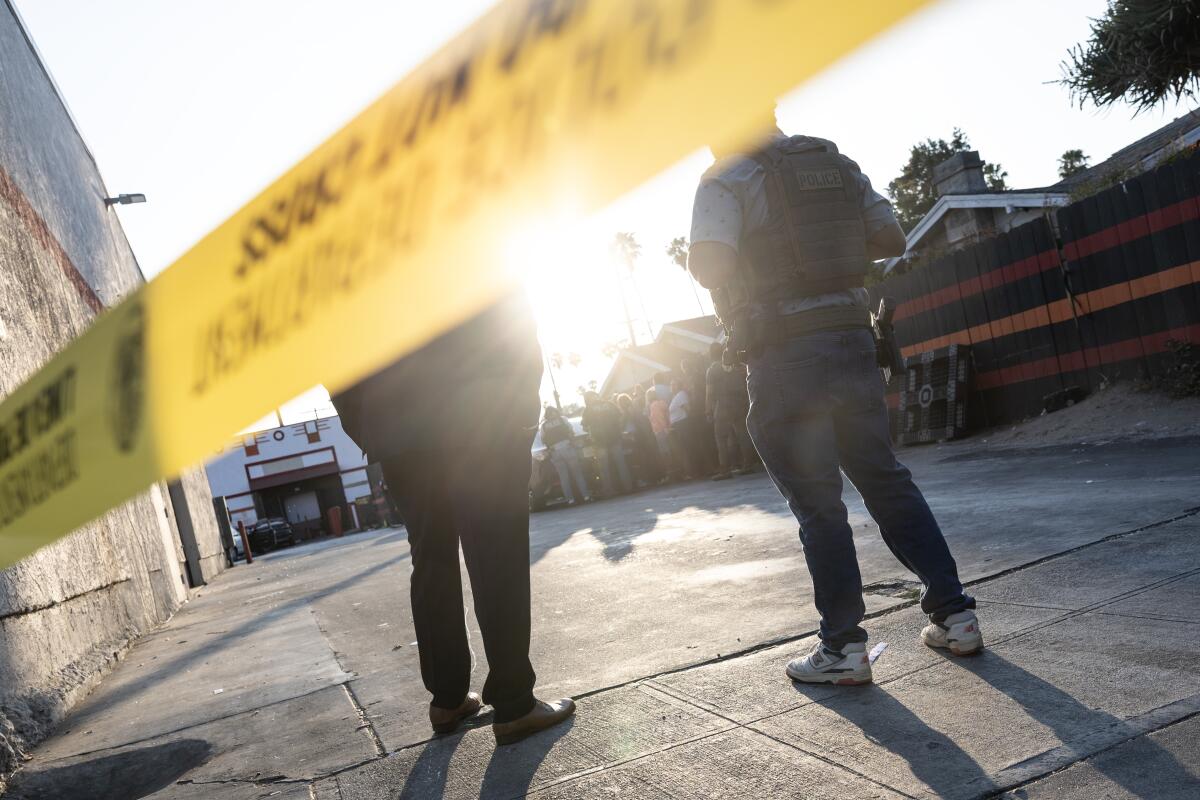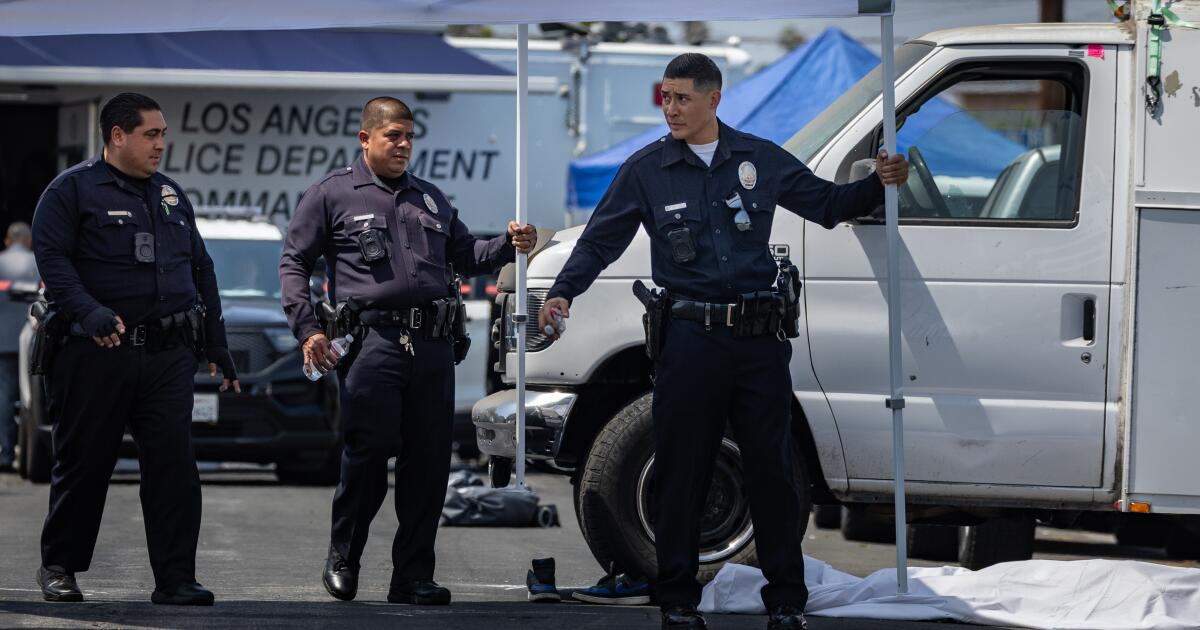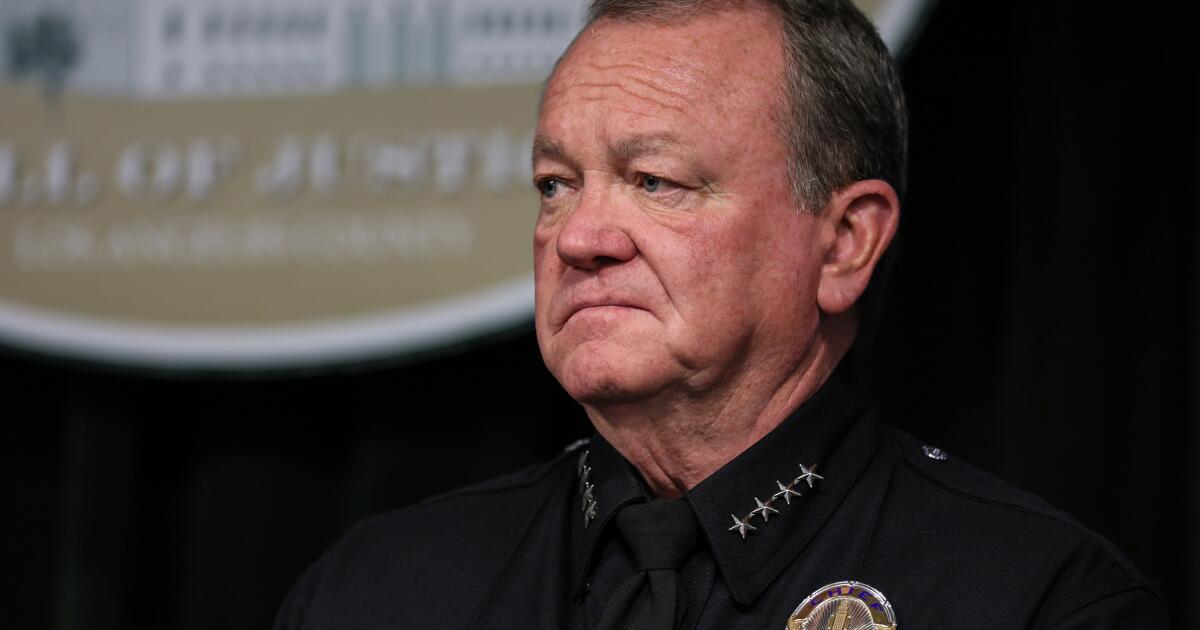Police secrecy bill would shield undercover California officers
California police officers accused of misconduct are already shielded by some of the strictest confidentiality laws in the country, but state lawmakers are considering adding more layers of secrecy this week.
The state Legislature is weighing Assembly Bill 1178, which press advocates and police watchdogs said would drastically expand the number of officers whose personnel records were exempt from public disclosure, essentially gutting police transparency bills passed in 2018 and 2021.
Last-minute changes to the bill last week would have allowed law enforcement agencies to deny requests for public records related to any officer who has worked an undercover assignment within the last two years, received a death threat in the last 10 years or anyone who has been assigned to a state or federal task force.
The office of Assemblywoman Blanca Pacheco (D-Downey) said the bill was initially “very narrowly targeted” to protect the identifies of active undercover officers who did not commit misconduct and are not under investigation but were present during wrongdoing by others.
Pacehco’s spokeswoman, Alina Evans, said the bill was amended in the state Senate at the request of the state Department of Justice, and Evans said the bill will not move forward if it is reinserted.
Asked for details about why the California Department of Justice pushed for the amendment, a spokesperson for state Atty. Gen. Rob Bonta said: “We regularly provide technical assistance on legislation, but we can’t comment on any specific discussions with legislative offices or committees.”
Opponents contend that the proposal’s original language could still allow undercover officers to have their names kept secret even if they are involved in a fatal shooting or accused of serious misconduct, but Evans said their names would still be subject to disclosure, just like any other officer’s would be under the current law.
The last-minute lobbying push around Pacheco’s proposal is one of several late bids to water down pro-transparency bills that have been introduced this year, said Shayla Wilson, policy and advocacy advisor for La Defensa, a criminal justice reform advocacy group.
“At a time when public trust in law enforcement continues to dwindle, further redactions in police misconduct records is not the right move,” she said. “Generally the public is unaware of how often these [police misconduct] violations happen, or how egregious they are.”
Transparency advocates have sought to expand public access to police personnel files, as well as records related to civilian oversight bodies and misconduct litigation. Efforts to open access to misconduct records have repeatedly run into aggressive opposition from police unions, one of the most powerful political forces in the Capitol.
LAPD officers conduct an operation on Slauson Avenue in July.
(Luke Johnson / Los Angeles Times)
The unions and their allies have argued that California’s confidentiality rules protect officer safety and privacy — and prevent so-called doxxing incidents, in which personal information about officers is spread online.
LAPD Chief Jim McDonnell did not respond to several attempts for comment through a spokesperson. The Police Commission, the department’s civilian watchdog, said in a statement that it supports Pacheco’s legislation.
“There is valid concern for the safety of officers whose assignments require anonymity as well as employees who have been subject to death threats — and their families. The Commission does believe that transparency is important but feels it is crucial to strike a balance between the public’s right to know and the safety of officers and their families,” the statement said.
The commission’s statement did not cite specifics but noted, “there have been times when the disclosure of records has provided safety concerns for officers and by default an [undue] level of access to their families, including their minor children.”
The proposed changes to state law come amid ongoing litigation over the publication of thousands of mugshot-style photos of LAPD officers obtained by an L.A.-based journalist and the watchdog group Stop LAPD Spying Coalition.
The journalist, Ben Camacho, obtained the images via a California Public Records Act request and published them on a searchable website called Watch the Watchers. The site describes itself as a transparency tool for people to identify officers who have committed misconduct.
But shortly after the site went live in March 2023, LAPD officials announced that they had inadvertently released photos of officers who worked undercover. The disclosure led to a tangle of legal cases, including a claim filed by the city of L.A. against Camacho and his organization trying to claw back the pictures.
Last June, the city settled the suit, agreeing to pay the legal bills for Camacho and Stop LAPD Spying. In the process, the city has backed away from initial claims that many of the officers whose photos were released were put in danger because they worked undercover. Police unions also sued over the photos, making similar arguments about the safety of officers being compromised, but their claim against the LAPD was dropped in April.
The Los Angeles Times was among the outlets to join a coalition of news organizations that spoke out against the city’s lawsuit against Camacho, arguing that forcing him to return the photos “would set a dangerous precedent that will undermine the news media’s ability to freely disseminate lawfully obtained information to the public.”
Los Angeles City Atty. Hydee Feldstein Soto is among those who has lobbied California lawmakers to weaken the state’s public records law. In the summer of 2023, she proposed a change that would allow government agencies to decline future public records requests that seek “images or data that may personally identify” employees.


